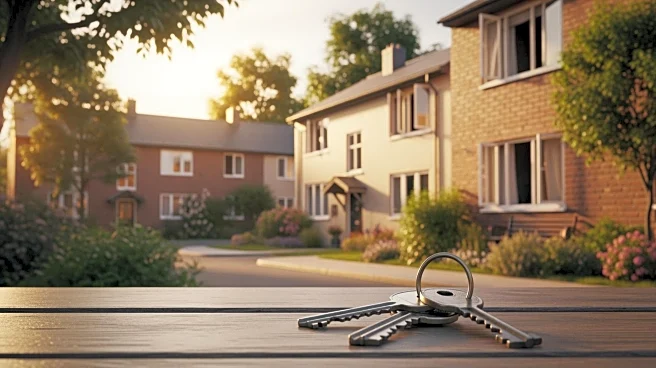What's Happening?
Community-owned real estate initiatives are gaining traction as a means to address economic disparities and housing shortages. In Atlanta, a vacant 7,000-square-foot commercial building is being redeveloped
into a mixed-use facility with affordable housing and commercial space. This project is part of a broader effort to democratize land ownership and control, allowing residents to co-own and steward land collectively. The initiative aims to interrupt cycles of displacement and exploitation by prioritizing community needs over speculative development.
Why It's Important?
These initiatives represent a shift towards economic democracy, challenging traditional capitalist models that prioritize profit over community well-being. By enabling local residents to have decision-making power and financial benefits from property developments, these projects aim to build community wealth and stability. This approach could serve as a model for other cities facing similar challenges, potentially leading to more equitable urban development and reducing vulnerability to economic precarity.
What's Next?
The success of these projects could influence policy changes, encouraging more cities to adopt community-owned real estate models. As these initiatives demonstrate their effectiveness in building community wealth and stability, they may attract more investment and support from public and private sectors. The long-term goal is to expand these models to address broader systemic issues in housing and land ownership.
Beyond the Headlines
The ethical implications of these initiatives are significant, as they challenge the commodification of essential resources like housing and land. By prioritizing community stewardship, these projects promote social justice and equity, offering a sustainable alternative to traditional real estate practices. This could lead to a cultural shift in how society views ownership and community involvement in urban development.









